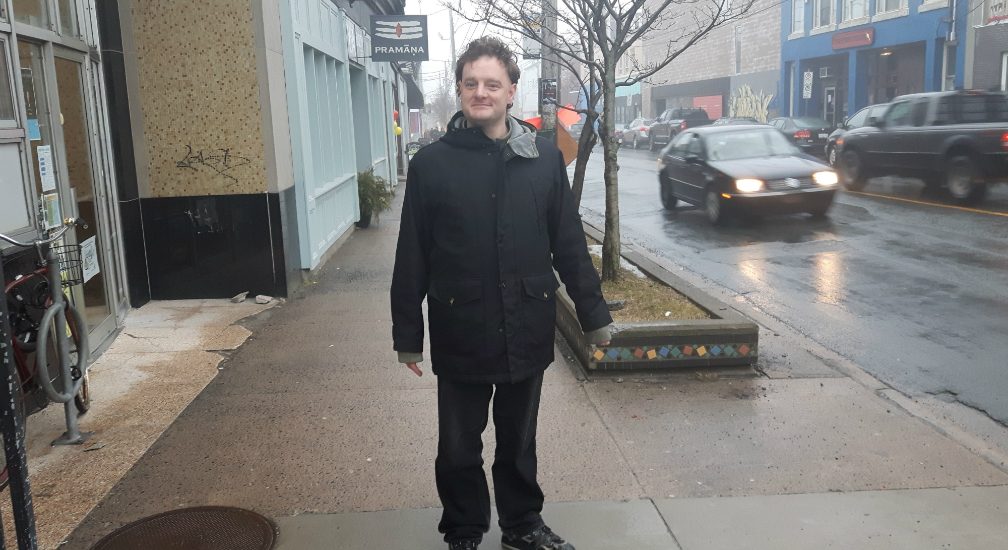KJIPUKTUK (Halifax) – Ever since I started writing about topics such as poverty and social isolation middle class people who read my articles sometimes want to talk about one specific concern they have about at least some people living in poverty. And it has nothing to do with money.
Their concerns relate to “inappropriate” body behaviour and body language by people they know who are living in poverty.
This did not surprise me.

I have talked to people at shelters and drop-ins who have mentioned to me that there have been times in their lives when they got in trouble for performing so-called inappropriate body language in public. Some even have a history of the police being called on them by concerned citizens for that reason.
In a nutshell this type of body behaviour includes gestures that make people around you feel uncomfortable. Examples of this behaviour include:
- Fidgeting in public
- Talking to themselves, in some cases out loud
- Big hand movements that make a person look like they are trying to start a fight with someone.
- Making no eye contact when spoken too
- Bad and unacceptable types of handshakes
- Giving mismatching verbal and nonverbal messages/communication
- Staring into space
- Failing to smile, or giving the wrong type of smile.
- Eye rolling
- Crossing arms defensively
- Evil-looking facial expressions
Middle and upper class people comment to me when they talk to me about this that according them, at least in their opinions “this behaviour is coming from people who are mentally ill who are not taking their medications.”
According to these same people “inappropriate” body language might be ok within the community of people living in poverty, however it is not acceptable in the communities of middle and upper class people.
Involuntary body behaviour in public does nothing to help make life better for anyone. All it does is make people around you concerned about you. In front of a wrong person who does not understand why people do it could cause a lot of problems.
Sometimes people report involuntary body language to the police or I have heard of a couple of cases where the wrong person approached somebody who was doing it and tried to start trouble.
I had a conversation with a police officer about when police get a call from someone reporting a person in public performing involuntary body language.
I was told that police have two concerns as to what the person might be doing at the time they receive the call.
- The person being reported to police could be drunk and intoxicated.
- In rare cases the person is masturbating
There are laws against these two behaviours. It is all about looking out for the comfort zone of people in the general public.
Police also worry that they are dealing with somebody who is mentally ill and has not taken his or her medication
Perhaps people who engage in this type of involuntary body language need some type of help that the drop-ins and soup kitchens where poor people go cannot offer.
If you can, please support the Nova Scotia Advocate so that it can continue to give a voice to people like Kendall and cover issues such as poverty, racism, exclusion, workers’ rights and the environment in Nova Scotia. A pay wall is not an option for us, since it would exclude many readers who don’t have any disposable income at all. We rely entirely on one-time donations and a group of twenty or so dedicated monthly sustainers.




Omg,
We do have a very vulnerable sector in society that is often isolated due to mainstream discrimination and un-empathic bias. These are PEOPLE who are living with metal health issues and other medical conditions that lead to mental health issues and displaying of involuntary muscle movement. More often than not, these people are harmless and more vulnerable than the so called able-minded person attacking them. Please be kinder as we broaden our scope of understanding the matter. Currently, Oprah and Prince Harry are hosting discussion about Mental Health on Apple TV. Maybe this could help one start the understating of what it means to live with mental health issues and how we all have mental health to worry about…
These people need our help, not hate.
Forward Thinking makes for more tolerant and inclusive communities. And if you’re still angry about these people, than maybe advocate for better mental health reform,, rather than target the victim- because statistically speaking, they are most often victims of severe trauma, and your hate towards them deepens their pain. Generally speaking, we don’t fear what we know, so let’s use this as a time to learn to be a better community, inclusive of its members!